Frugal living can help turn your financial situation around for good.
You may sometimes spend lots of money on avoidable expenses, or on things that are not important; a frugal lifestyle will help you to prevent budget leaks, put some of that money back in your pocket or towards more important things.
You have an excellent chance to go from being a spend freak to a saver if you follow the frugal living tips discussed here.
Frugal living may differ from person to person; however, it is merely about making small changes to your spending habits, being intentional with your spending, and finding ways to cut back on certain expenses to save money.
Being frugal with money involves prioritizing the essentials, limiting unnecessary expenditures, and living within your means.
A frugal lifestyle may involve forgoing designer labels, a new car, or fancy meals so you can save for something else that is more important to you, such as a vacation.
However, the good thing about frugal living is that you get to decide what you leave out, depending on what’s important to you.
It’s entirely up to you to create the approach you use since there’s no one size fits all approach to frugality. It’s all about what works for you.
Frugal living doesn’t mean leading a cheap life, though. It’s more about being smart with money than cheap.
Living cheaply would mean always looking for the cheapest version, which would eventually break down in the long run and need to be replaced.
Frugal living doesn’t mean foregoing quality, but rather shopping around to find the best price for quality on an item you need, since quality items cost less in the long run.
It’s about making smart choices and getting the most value for every cent or penny you spend.
For you to succeed at frugal living, you need to avoid looking at the things you have to give up.
You have to forego some “pleasures” and habits that cost you money, and the process may not be entirely pleasant; nonetheless, think more about the positive aspects or what you stand to gain in the long term to keep you motivated.
Also, success at frugal living requires you to not compare yourself with others. You need to settle into your way of doing things and do what works for you only.
A frugal lifestyle will help you on your journey to financial freedom; you will learn to budget your money and be able to pay off your debts faster and without making mistakes in the process.
RELATED: Mistakes When Getting Out of Debt: 9 Mistakes To Avoid
You’ll also get to put more money towards your savings, investments, sinking funds, or emergency funds and achieve your financial goals quicker.
If you are tired of your finances being out of control, then frugal living is worth a try.
There are three primary rules to start living frugally.
- Maximize the value of everything, whether you spend money on an item or not.
- Minimize the rate at which you create waste, which means you should reuse whatever you can.
- Do not think that more money is the only way to be successful.
Some people think that earning more money is the only way to reach their financial goals, but that is not entirely true.
You could still end up spending your extra earnings on things that are not important if you do not adopt the discipline that goes with frugal living.
It can help find the spending leaks in your budget, showing you where to cut back on and not find yourself in a situation when you’re behind on bills.
So even if you start earning more, you can still accelerate the speed at which you reach your financial goals.
Now you know what frugal living is and how it can help your finances, here are 32 frugal living tips or simple ways to help you turn your financial situation around for good.
1. Start by Making a Budget
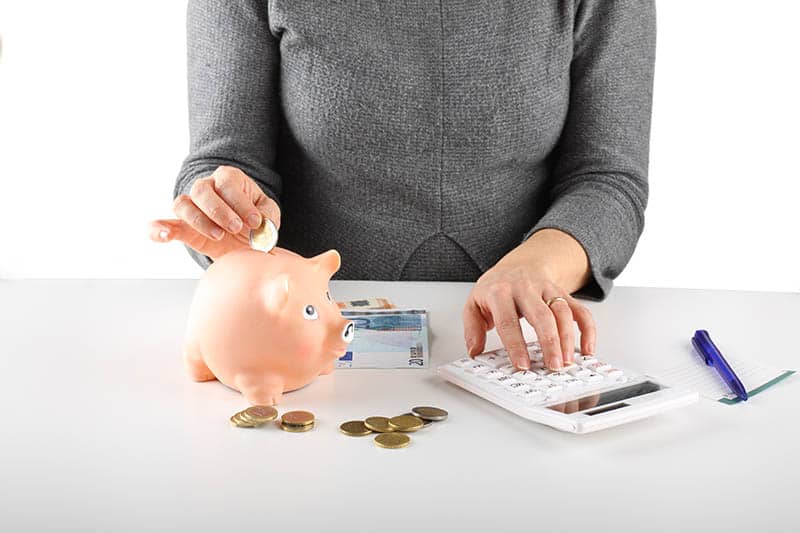
If you do not have a plan for where your money should go every month yet, now is an excellent time to start making that plan.
Budgeting is simply a way of making a financial plan that assigns every dollar you earn to your monthly bills, debt repayments, and savings.
RELATED: Budgeting Advice For Beginners: 8 Best Steps To Manage Your Money
A frugal living lifestyle won’t make much impact on your finances if you don’t create a budget first.
There are different kinds of budgeting methods available for you to choose from based on the option that suits you best.
We have the zero-based budget method, the 50/30/20 budget method, and the cash envelope method.
Dave Ramsey popularized the zero-based method.
Here, earnings match expenses completely. Total income minus outflow will leave $0 as a balance.
In this budgeting method, every dollar has a job assigned to it. While some go into your different expense categories, others go to savings.
The zero-based budgeting method is restrictive, so it may not be the best for everyone.
But it will suit you best if you want an option that will help you cut your spending and reach your personal finance goals.
Sen. Elizabeth Warren created the 50/30/20 method.
It helps you split up your earnings into percentages, allocating 50% to your needs, 30% to other expenses under the “wants” category, and 20% to your savings.
This approach allows for more flexibility in spending, but there is a chance that you would spend unnecessarily in some expense areas.
Lastly, the cash envelope system allows you to physically put away money for different expense categories in marked envelopes.
RELATED: How To Categorize Expenses: Personal Finance Management Tips
The cash in each envelope is allocated specifically to particular expenses, and when the funds in a specific envelope are gone, spending on that expense category ends as well.
However, you need the discipline to leave every dollar for the expense it was allocated to and not take from one envelope to cover expenses in another expense category.
When you decide on the method to use, go ahead and make your budget.
Ensure you prioritize your needs, while cutting out things that are not important.
After making your budget, it is critical to stick to it to give it the best chance of being successful.
2. Go for Generic Brand Everything

They are great options if you are interested in reducing your outgoings, since generic products cost less than their brand name counterparts.
So instead of insisting on brand name everything, buy generic and save the difference.
3. Plan Your Meals
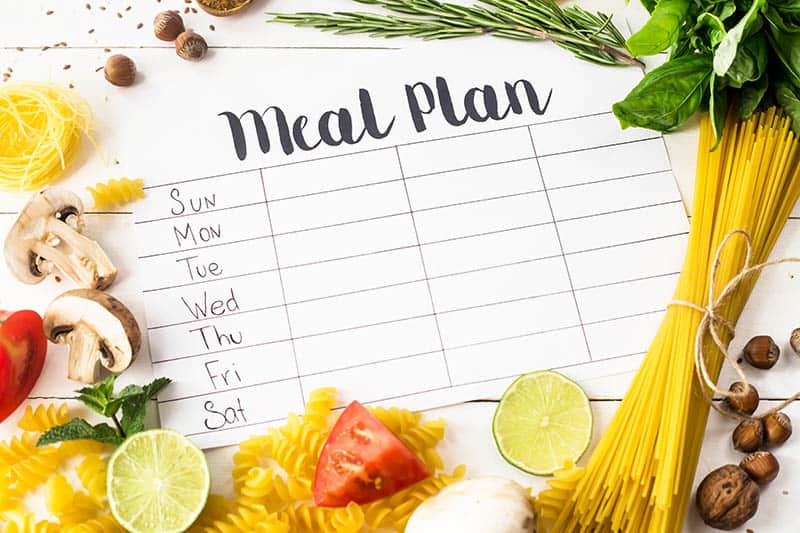
It eliminates indecision at lunch or dinner time, meaning you don’t have to call for takeout or run to Starbucks because you have no idea what to eat.
It allows you to plan your grocery shopping list, so you don’t spend much money at the store or much time in the kitchen.
RELATED: Vegetables and Fruit In Season By Month: When To Buy What
You can plan your meals for the whole week or even a follow a monthly meal planner.
While you’re at it, check your fridge and pantry to see what items and ingredients you have at hand.
You may have enough ingredients to plan a whole week’s meal without spending an extra penny on food for the week.
Meal planning allows you to plan your meals depending on your schedule.
You also need to have a list of “go-to” meals that you and your family enjoy and that are easy to prepare, especially for busy nights.
Another good thing about planning your meals is that you can take advantage of what is on sale and items that are marked down to plan your weekly meals.
You can even buy what you need in bulk.
Budget meal planning generally gives you the chance to save on food, an expense category where people often overspend with the excuse that they just have to eat.
4. Prepare Your Meals in Bulk
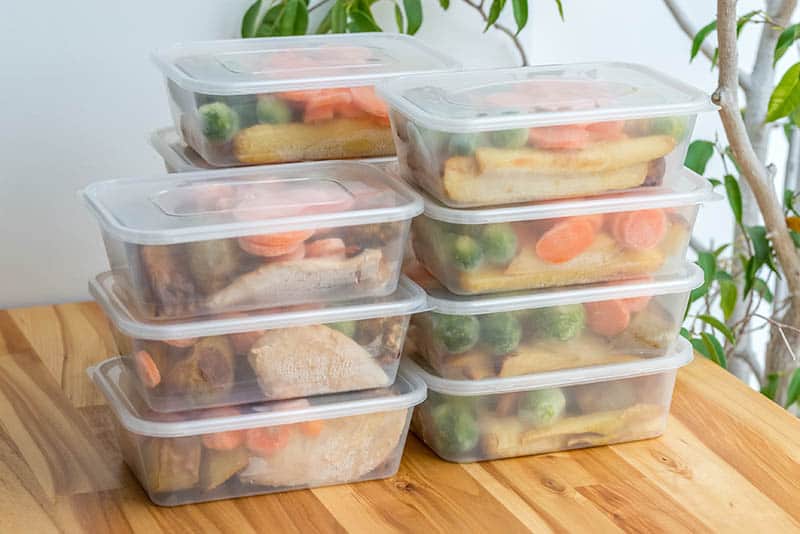
You may have nights when you are too tired to cook, and you only have the option of calling for takeout.
Preparing your meals in bulk can eliminate the need to spend on takeout.
All you have to do is cook your meals in large batches when you can, then pack them into the freezer so they stay fresh till you need them.
5. Prep Your Food in Advance
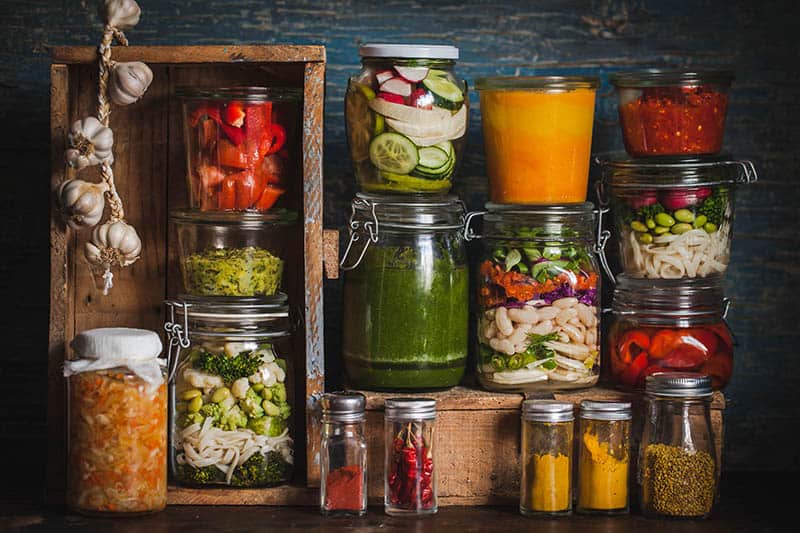
Instead, put in a little time and effort when you get home from the grocery store to prep your own food from scratch.
6. Don’t Throw Food Away

Do not put leftovers in the trash because it’s just like throwing money away.
Throwing out food means less food and less money for you. Just freeze the leftovers for later.
7. Buy Reusable

You don’t have to do the dishes after eating or wash the towels and napkins.
However, the cost of buying these products time and time again adds up into lots of money over time.
Instead of buying disposable water bottles, paper plates, diapers, paper towels, etc., buy the reusable kind instead and spend a little time washing up to save money.
8. Get a Programmable Thermostat
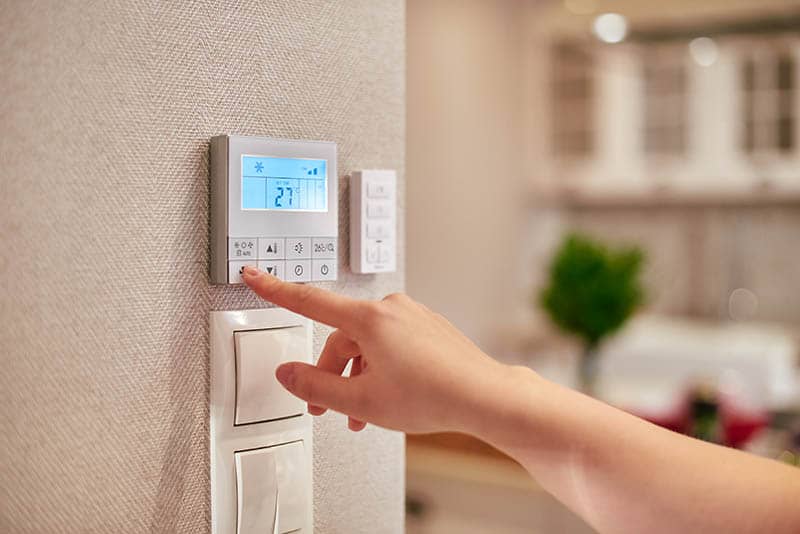
You can program it to adjust to a cooler or warmer temperature or even turn off completely depending on the time of the year.
Some thermostats will even allow you to control them remotely. When you are not there, you can make adjustments by using an app.
Being smart with your thermostat will help you save money on your electricity bills.
9. Cancel The Subscription to Your Favorite Store’s Email List

10. Buy Used Clothes

11. Find Free Ways to Keep Yourself and Your Family Entertained

Find ways to be entertained without having to spend.
Check out a local park, ride a bike, take a hike, go to a free art exhibition, etc.
You can make it memorable with your loved ones at no cost.
You can also sign up for a library card at your local library to get access to lots of books, collections of magazines, and other things for free.
12. Use Cash Only for Your Payments

Only taking cash will help you check the habit of throwing extra items in your shopping cart and paying for them on your credit cards.
It is also easier to spend more when you are just swiping cards, and you may end up spending money you don’t have yet.
Shopping with cash will help you stick to your budget, buy only what you need, and limit credit card debts.
13. Avoid Speeding Tickets
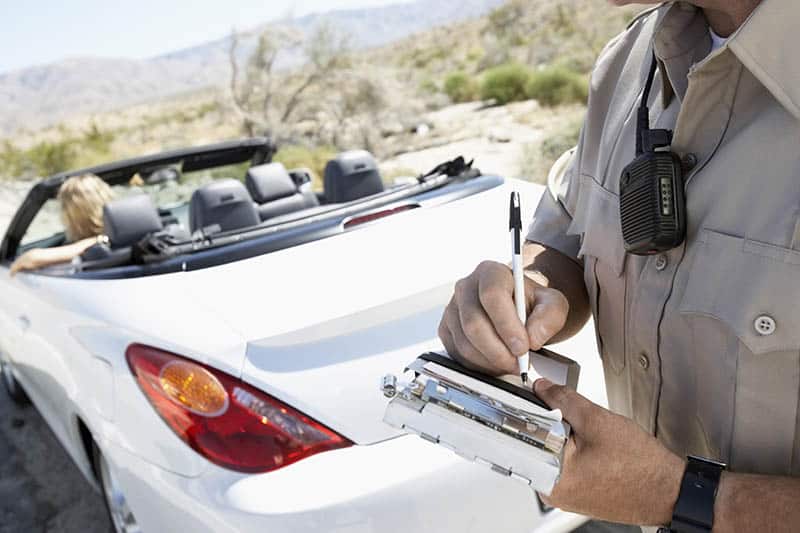
If you have to get there earlier, set out in good time.
Set your alarm to remind you when you should leave.
This way, you’ll be saving your life, other people’s lives, and saving the money that could have gone on speeding tickets.
14. Wash Your Car Yourself
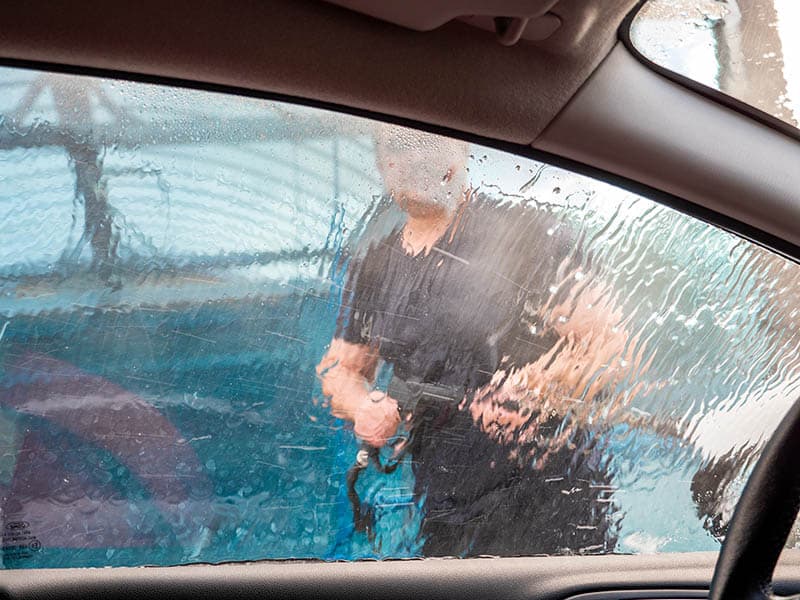
You just need a bucket, soap or detergent, and some old rags.
There are also some spots that a mechanical car wash misses at times, so washing your car yourself will allow you to reach these spots and clean them out.
15. Cancel Memberships You Don’t Use

Even if you have plans to hit the gym in the future, cancel them until you are ready.
In the meantime, you can find free ways to stay healthy and keep fit without paying for a gym membership.
You can use a fitness app, jog around your neighborhood, ride a bike, or join running groups that meet up for exercise in your area.
16. Dry Clean or Wash Your Clothes Only After Multiple Uses

To save you money on dry cleaning, help your clothes last longer, and retain their color for longer, hang up your clothes after the first wear and reuse before washing.
Ensure that they don’t look or smell bad after the first use so that you can get an extra day of use from them before washing.
17. Pay Your Bills and Debts on Time
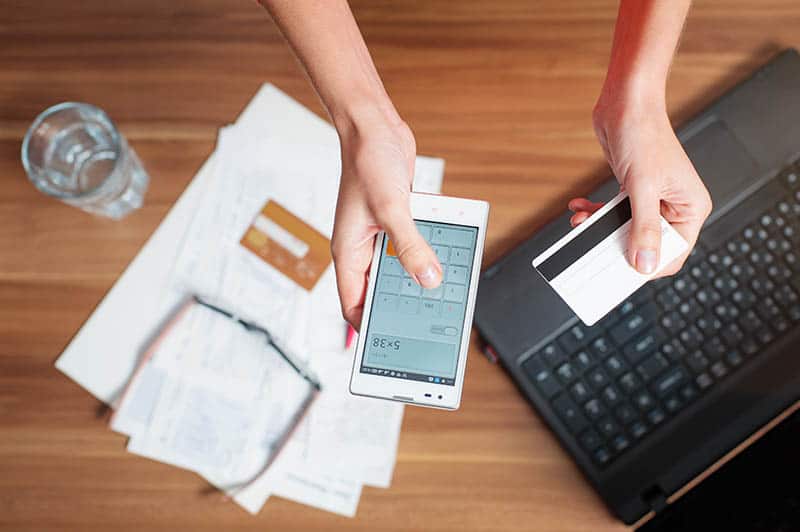
These late fees add up to lots of money over time, and it’s to your detriment since you end up making the banks richer.
Being late over time also affects your credit score, and this could get in the way when you decide to make a major investment later on.
18. Drop Habits that Cost You Money

Drop smoking, drinking, gambling, and shopping, etc.
Try replacing them with cooking, reading, games, etc.
19. Shop with a List
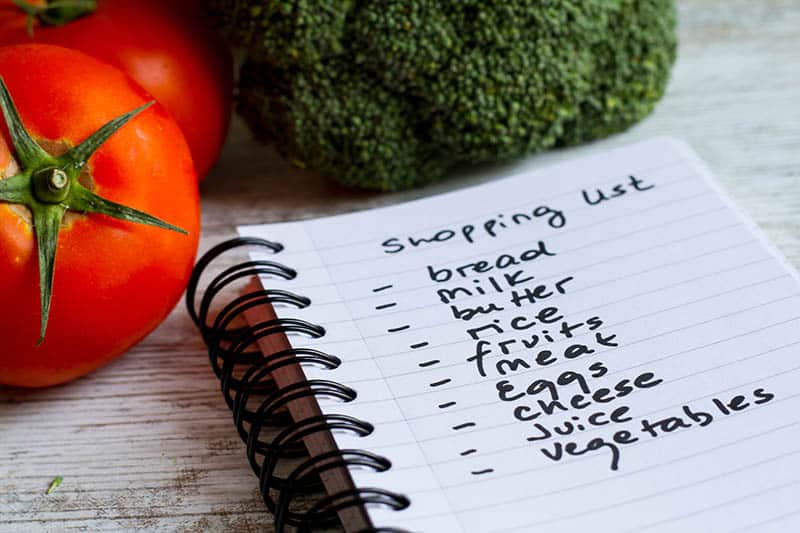
Ensure you only purchase what you have on the list.
Avoid throwing extra items into your shopping cart as it means you’ll spend more than you budgeted.
20. Look out for Coupons and Discounts
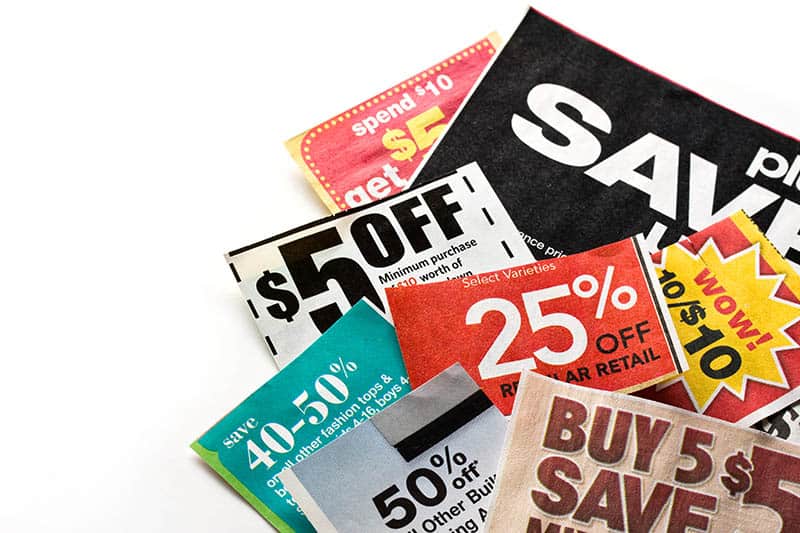
You can get discounts on the full price of products when you buy them in bulk with your coupons within the validity period.
It helps you save money, and since you are buying in bulk, you won’t need to go back soon to buy the product again.
21. Use a Drying Rack or Clothesline to Dry Your Clothes
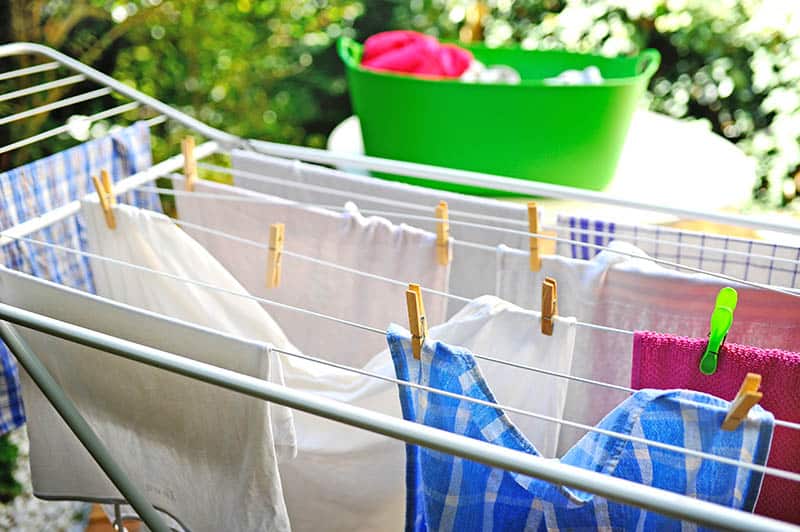
Try drying your clothes on a drying rack instead, to save a little on your electricity bills.
22. Cancel Your Cable
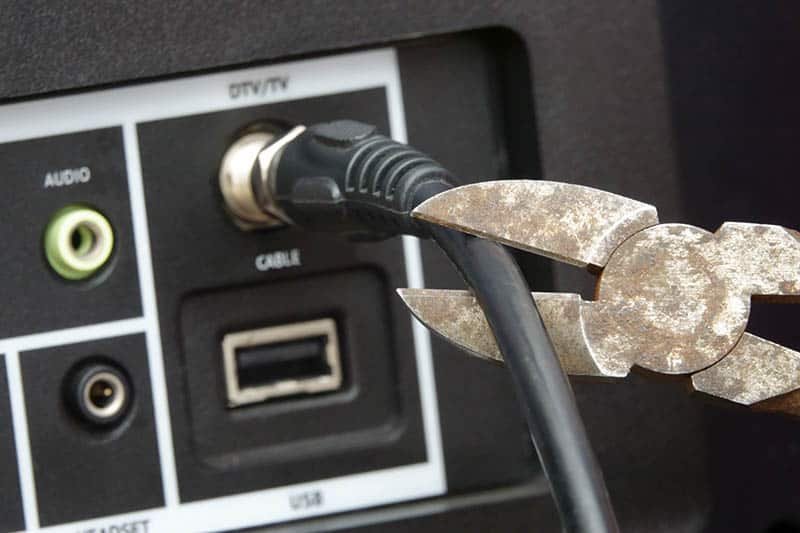
When people are at a point where they have to make this decision, they often fear that they may not find alternatives.
However, you can stream popular TV shows on Hulu, Amazon, Netflix, and others.
These streaming sites are great alternatives to a cable service.
23. Sell off any Extra Property you don’t Need
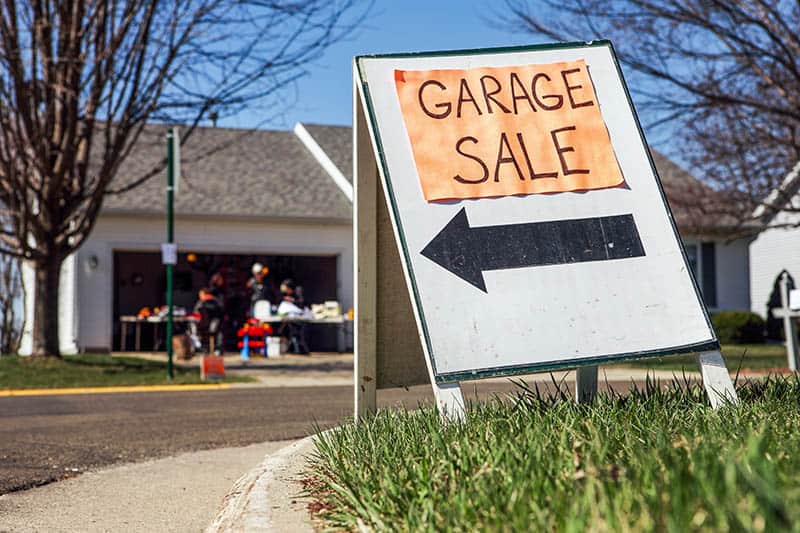
If you have things lying around the house or in the yard that you don’t use anymore, consider selling them off to make some money and to free up storage space.
Children’s clothes that are no longer needed, as well as toys, baby gear, bags, electronics, decorations, and tools, can all be cleaned up and sold off on eBay, Craigslist, and at other consignment stores.
If you have a second car, sell it off.
That way, you’ll save on car insurance premiums, gas, and other car-related expenses.
24. Stack Errands Together
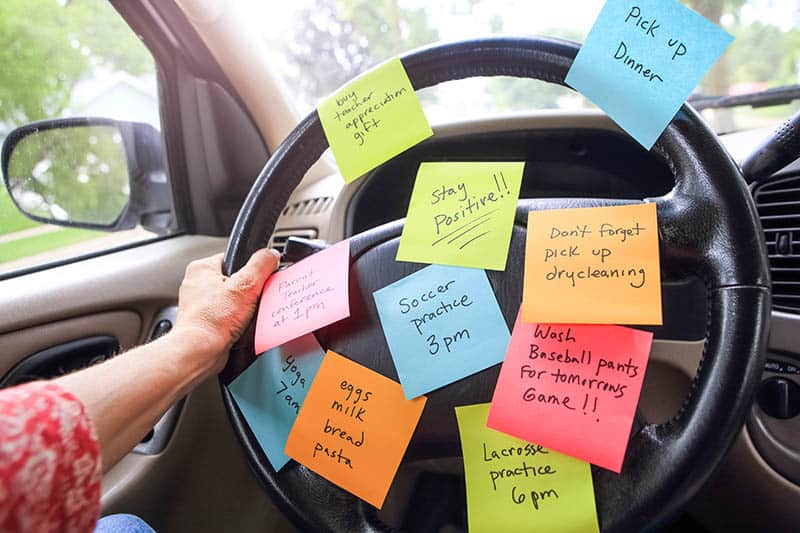
For instance, if you need to go shopping, have a list of everything you need from the store and buy it all at once when you go.
This way, you’ll save on gas.
25. Stay at Home

As you have paid a lot of money for your house, you should stay in it as much as possible.
You can play outdoor games or have a romantic dinner, organize family game night or a movie night at home to save money.
Get drinks and popcorn to make it similar to what you get when you go to the movies.
You’ll get to spend quality time with your family, talking, laughing, creating your own family rituals and making memories.
You can do this on birthdays, holidays, anniversaries, and other special days, and no one will be bothered about going out.
26. Learn How to do Things for Yourself and Your Kids

You don’t have to be so perfect at first, doing things over time helps you to perfect them.
If you start cutting your child’s hair while they are still young, they’ll be thrilled to have mom cut their hair while you take your time to get better.
You can also dye your own hair and do your manicure and pedicure.
27. Do not Try to Compete or Impress

You don’t have to go beyond your budget to maintain a particular standard.
Live within your means and learn to be content.
If you can’t afford something now, let it be. Concentrate on your journey to financial freedom.
28. Use Everything to the Last

Use every ounce of your shampoo, conditioner, lotion, toothpaste, etc.
You can even cut the packaging open when it’s empty to get to the bottom.
29. Do Your Repairs Yourself
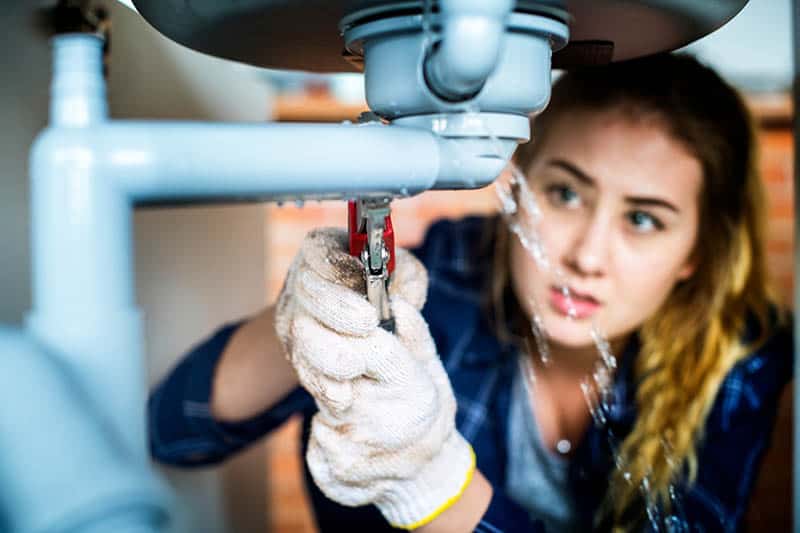
You don’t need to pay a pro for everything.
You can get all the help you need from DIY videos on YouTube, and with the basic knowledge of what you have to do, and a few tools, you are good to go.
30. Increase Your Deductibles
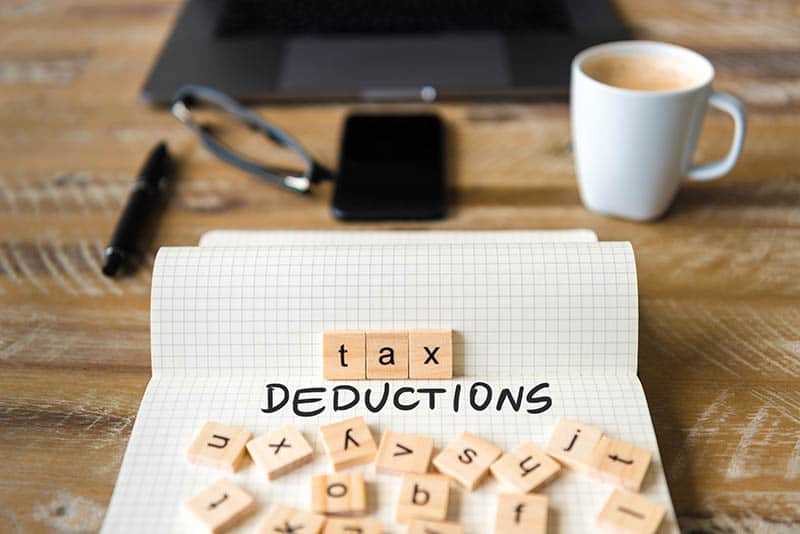
You don’t have to get rid of your car insurance entirely, but if you think you drive safely, you can increase your deductibles until you get a good grip on your finances.
However, the risk attached to this is that, if something happens, you’ll have to pay more from your pocket; hence you need to be very careful when you drive.
31. Plan your Trips for Off-peak Times

You can get cheaper tickets and cheaper offers on other travel expenses during off-peak days, weeks, months, or at certain times of the day.
32. Find Something You are Passionate About and Turn it into a Side Hustle

In addition to your other sources of income, and the savings from your frugal lifestyle, some extra money from a side hustle can help you achieve your financial goals quicker.
Find out what you enjoy doing, something you are passionate about, and think about how you can start making money from it.
RELATED:
- Make $50 A Day While Being A Stay At Home Mom: 21 Amazing Tips
- How To Afford To Be A Stay At Home Mom: 18 Useful Tips
- Striding For Success: 13 Best Apps That Pay You To Walk
Wrap Up
If you are trying out a frugal lifestyle for the first time, it won’t be easy but you’ll get used to it with time.
There’s no perfect strategy; you have to try out different approaches to find those that work for you.
If a particular strategy doesn’t work for you, you can make changes at any point.
The goal is to get your personal finances under control and get you debt-free, and the best frugal living tips discussed here can help you achieve that.
Like this post? Please share or pin it for later. You can also stay in the loop and follow us on Facebook, Instagram and Pinterest.
READ NEXT:
- Saving Money Motivation: 10 Tips to Reach Your Savings Goals
- Budget Calendar: A Guide To What It Is And How To Use It
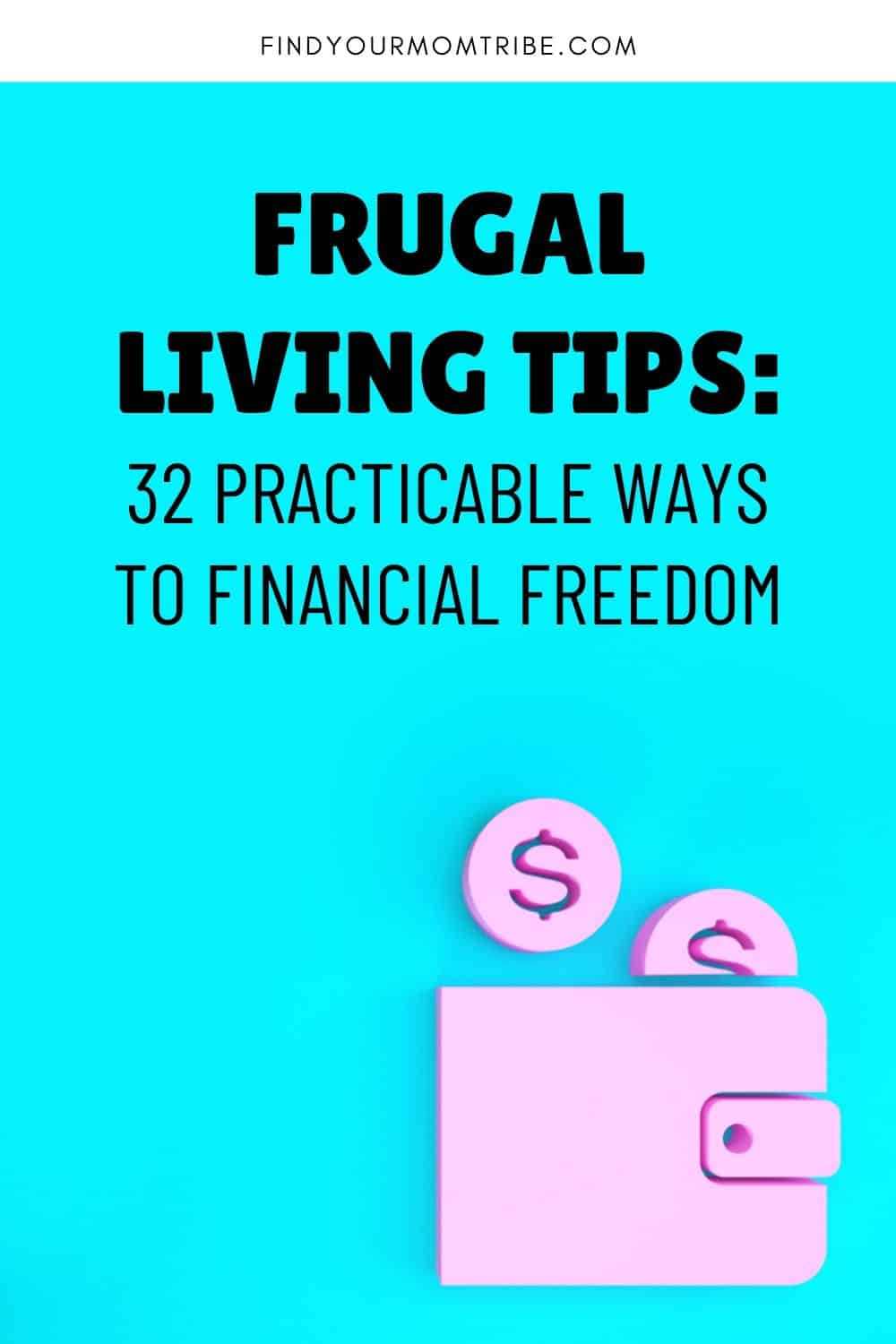
This post contains affiliate links. Please see our full disclosure for more info.

